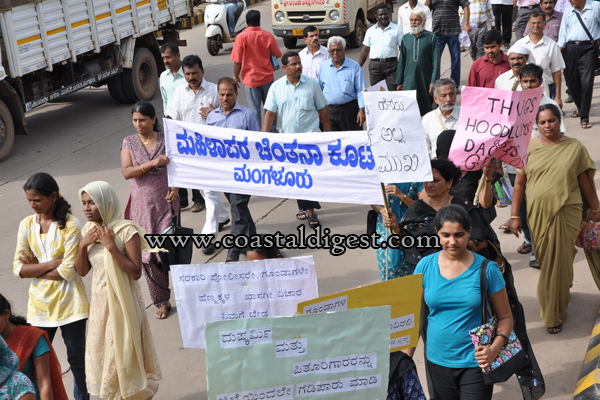
Mangalore, August 4: The RSS top brass are the real perpetrators of the homestay attack and leaders such as Kalladka Prabhakar Bhat and Jagadish Karanth must be arrested first, K L Ashok, Secretary, Karnataka Komu Souharda Vedike (KKSV) said.
He was speaking at a protest organized in Mangalore on Friday by KKSV, in collaboration with other likeminded organisations against the attack on young boys and girls at a homestay by Hindutva activists.
The police have registered cases against media persons in the incident. If they have guts, they must arrest Kalladka Prabhakar Bhat and Jagadish Karanth who are the brains behind the attacks, Mr. Ashok said. Activists working for the Sangh Parivar must realise that they are being misused by their leaders. In times of arrest, the likes of Kalladka Bhat and Jagadish Karanth do not come to their rescue, he said. Kalladka Bhat has not been arrested by police yet, in spite of there being clear evidences of him spreading communal hatred, Mr. Ashok said.
On one hand, the Sangh Parivar opposes burqa and on the other complains of westernization. The saffron organisations have no right to dictate dress codes on Indians, he said. Taking a dig at Pejawar Shree and all others who criticized the dress code and girls' participation in the party, Mr. Ashok said that all such people are speaking the RSS language.
Gowri Lankesh, journalist, said that religion is not above constitution. Holding the RSS responsible for the attacks, she said that organisations such as the HJV, Bajarang Dal, VHP etc are all branches of RSS. The RSS has always been anti-women, she said. It has been responsible for creating tense atmospheres in the country whether it was the killing of Mahatma Gandhi, demolition of Babri Masjid, Gujarat riots or the blasts in various parts of the country including Mecca Masjid and Samjhauta Express blasts.
Jyoti Guruprasad, popular columnist, said that the attack on students at the homestay was an attack on humanity. Why didn't HJV raise its voice when Halappa, Renukacharya and Padmapriya cases came to the fore, she questioned.
Sabiha Bhoomigowda, progressive thinker, said that instead of addressing the key issue of the assault on students, many including State Women's Commission Chief C Manjula tried to divert the issue by discussing the legality of the homestay and so on.
B T Lalita Nayak, former minister, said that citizens enjoy freedom to live their lives and if they do something objectionable, there is law and order to deal with it. She demanded a ban on Hindu Jagarana Vedike on the occasion.
Members of several other organizations such as DK District Women's Forum, Diocese Council of Christian Women, Mangalore Citizen's Association, National Women's Front, Popular Front of India, Catholic Sabha, AHINDA, Karnataka Rajya Dalitha Sangharsha Samithi, PUCL, Karnataka Missions Netwrok, Mangalore Central Committee, National Confederation of Human Rights Organisations, among others participated.
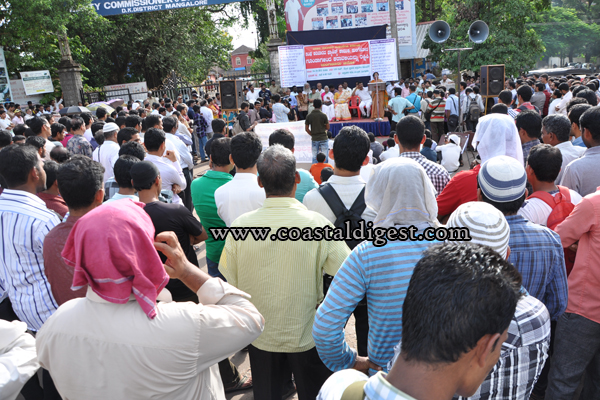
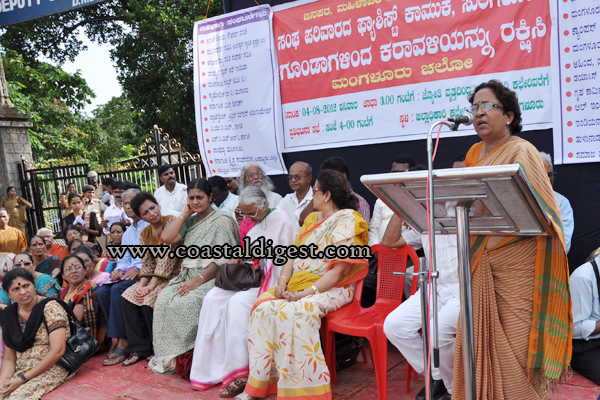
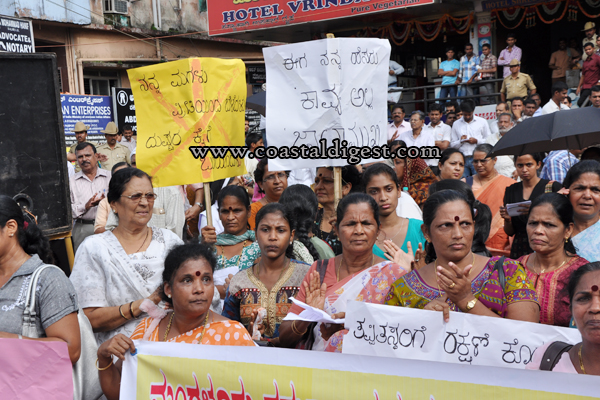
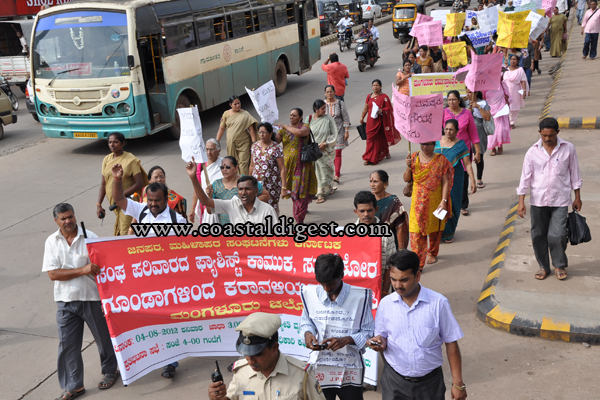
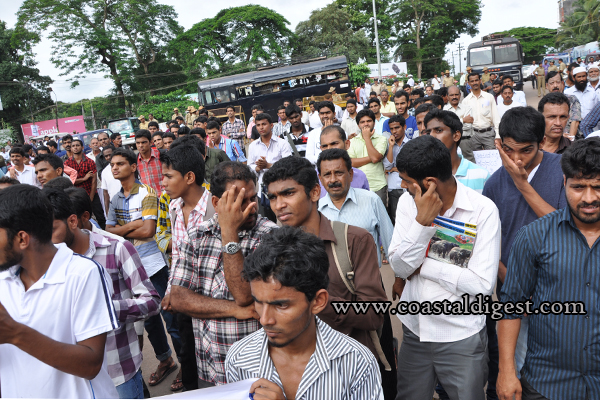
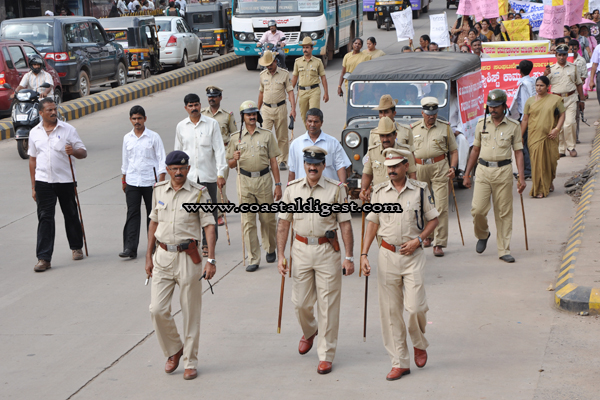
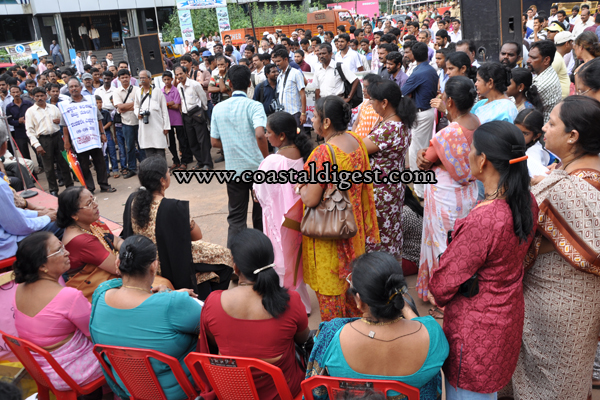








Comments
Add new comment